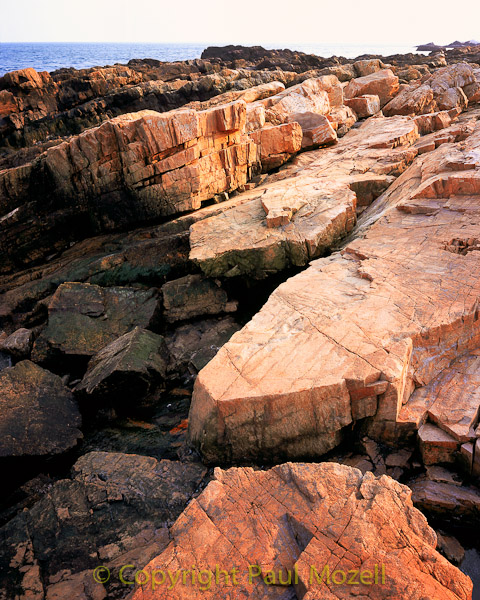© Paul Mozell
The second installment in a new series. Many of the tips are not specific to nature photography. Your feedback is welcome!
6) Shoot every day. So many aspects of photography improve with practice; some subtle, some obvious. Just as a musician needs to play or sing every day, and an athlete has work out each day to maintain his or her edge, your nature photography will benefit from daily exercise. This includes your facility with camera settings and lighting, and the clarity of your vision and creative viewpoint.

Sunset glow on Bass Rocks, Gloucester, MA. Toyo Field, 4x5.
7) Ask for feedback. “What do you think of my photographs?” can be a tough question to ask; especially if you are afraid the answer won’t be what you want to hear. But getting feedback from a variety of sources will improve your photography. Flickr users will give you plenty of feedback as will the users of the new photo-sharing site 500px. Local photography clubs, workshops, and classes can be a good source of knowledgeable, compassionate opinions.
8) Exhibit your work. Get out of the closet and show your work. Chances are you can show several pieces each year at a local art association. Visit the private art galleries in your area and inquire if they are selling photography. Many galleries don’t. If they show some interest, present a portfolio of local subjects. People vacationing in Down East Maine want to return home with photographs of the seashore, not images of Yosemite. Some restaurants can be decent venues — but price your work lower than you would at a gallery. Community centers and hospitals in your neighborhood or town may welcome the loan or gift of several framed nature photographs of calming scenes.
9) Enter contests. Photography contests can be a great way to get visibility for your work. Read all the fine print before signing up. Some contests require you to assign all rights to the contest sponsor(s) and you may not wish to do this. Learn if the submission fees are a fundraiser for a non-profit group or just revenue for a commercial entity. In most cases, contests are a fair promotional venture for everyone involved. Just know what kind of commitment you are making before uploading files. Only submit images that are technically perfect while responding to the specific theme or category. The judges are going to zip through the submissions pretty quickly, so send your best.
10) Use the equipment you have. You can make terrific nature photographs with any photographic equipment. That includes all manner of point-and-shoots and even camera phones. You can photograph birds and wildlife without 500mm or 600mm glass. Think about the animal as part of the landscape. Don’t have a wide angle lens with you? Shoot 3 to 5 frames in the camera’s built-in panorama mode, or plan to stitch them together at home. It’s better to make an image that records the moment in time than to pass it up because you didn’t pack the right gear.

